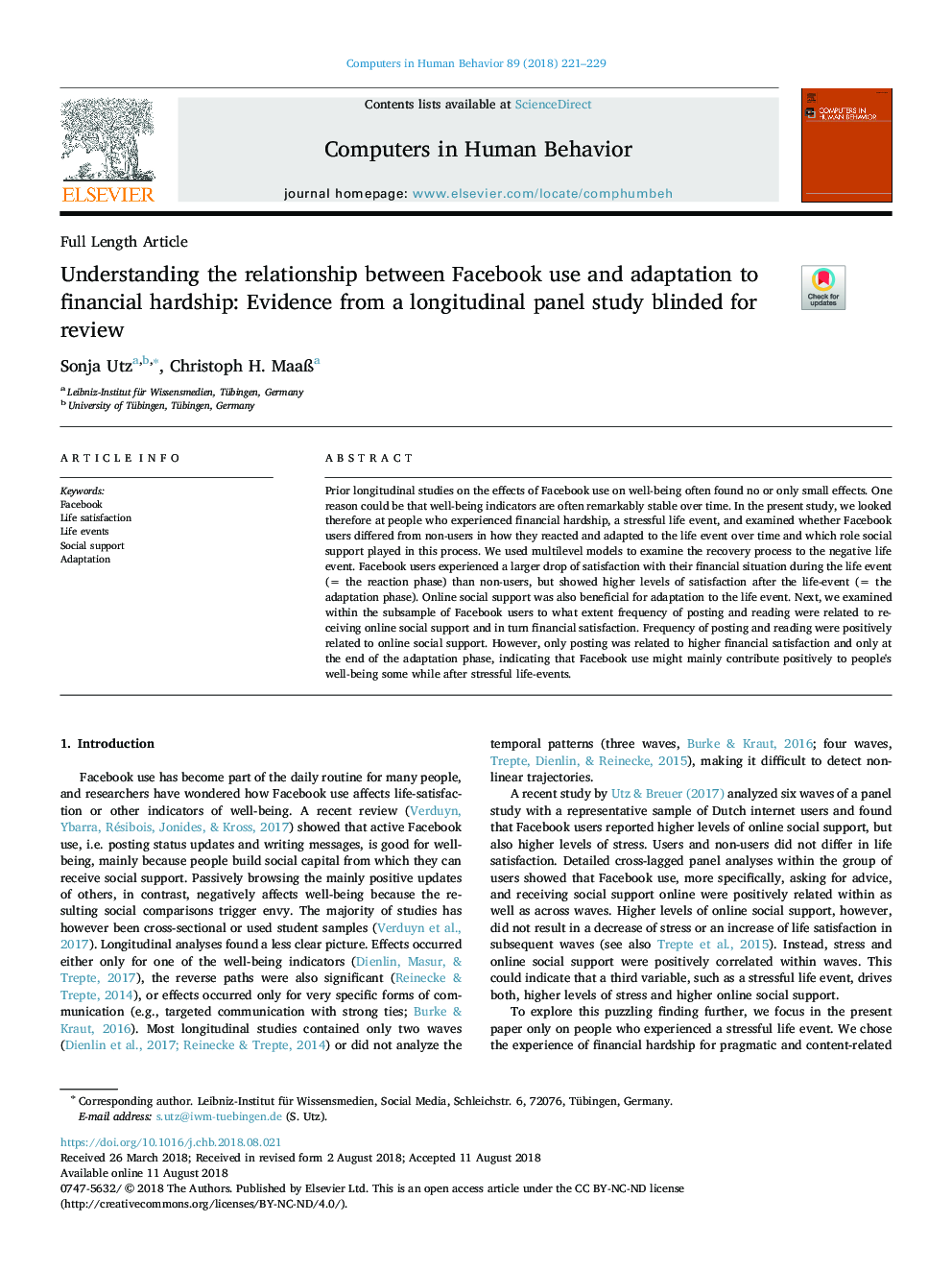| Article ID | Journal | Published Year | Pages | File Type |
|---|---|---|---|---|
| 11002119 | Computers in Human Behavior | 2018 | 9 Pages |
Abstract
Prior longitudinal studies on the effects of Facebook use on well-being often found no or only small effects. One reason could be that well-being indicators are often remarkably stable over time. In the present study, we looked therefore at people who experienced financial hardship, a stressful life event, and examined whether Facebook users differed from non-users in how they reacted and adapted to the life event over time and which role social support played in this process. We used multilevel models to examine the recovery process to the negative life event. Facebook users experienced a larger drop of satisfaction with their financial situation during the life event (= the reaction phase) than non-users, but showed higher levels of satisfaction after the life-event (= the adaptation phase). Online social support was also beneficial for adaptation to the life event. Next, we examined within the subsample of Facebook users to what extent frequency of posting and reading were related to receiving online social support and in turn financial satisfaction. Frequency of posting and reading were positively related to online social support. However, only posting was related to higher financial satisfaction and only at the end of the adaptation phase, indicating that Facebook use might mainly contribute positively to people's well-being some while after stressful life-events.
Related Topics
Physical Sciences and Engineering
Computer Science
Computer Science Applications
Authors
Sonja Utz, Christoph H. MaaÃ,
